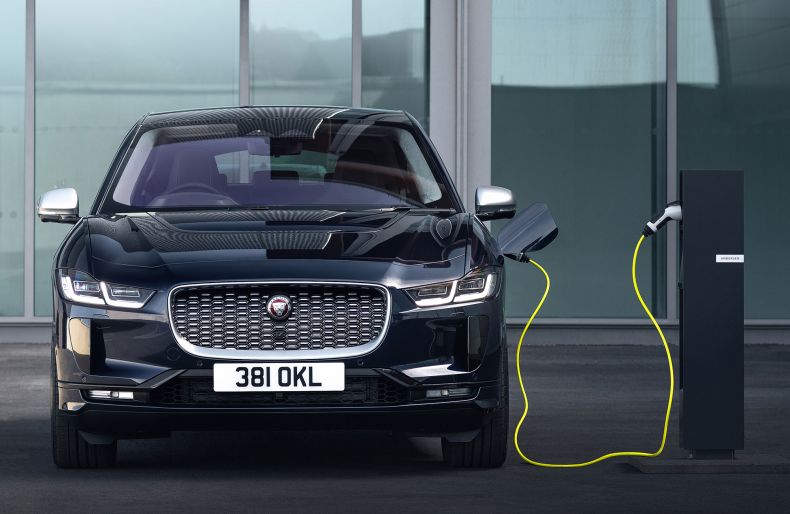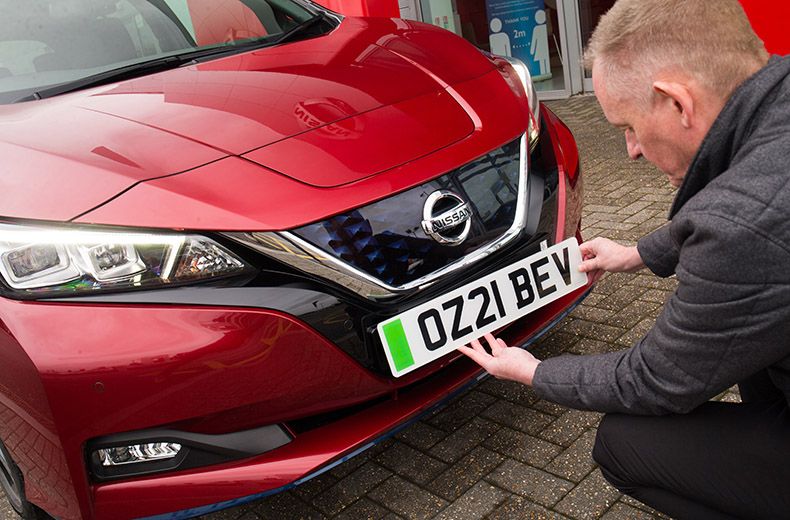If you're in the market for an electric car, you might find the upfront price or monthly leasing costs are higher than an equivalent petrol or diesel model. But don't let that put you off.
That increase in cost can be cancelled out by the lower running costs of an EV. Everything from road tax, to refuelling costs and even maintenance and repairs can be substantially lower in an electric car. Our expert guide runs you through all the ways electric cars can - and can't - save you money.
Electric car charging costs
Charging an electric car at home is always the cheapest option. Many energy providers now offer EV-focused tariffs that can cut costs even further.
These are usually dual-rate, where electricity is cheapest overnight when your EV is charging, or single-rate – i.e., the same rate is paid throughout the day, but discounted if you own an EV.
- Make EV charging easier with the RAC home charge point installation service
- Electric car charging – how it works and how much it costs
- Charge points set to overtake fuel pumps by 2030 – but is it enough?
Other providers of EV charging tariffs include British Gas, EDF Energy, Gridserve, BP Pulse, Ionity, Octopus Energy and Ovo Energy. Many offer overnight tariffs that are under 10p per kWh (as of 2025) meaning a full overnight charge of your car can cost a few pounds.
The UK government offers a grant for certain motorists to save money on the installation of home EV charging points. The Electric Vehicle Homecharge Scheme offers a grant of up to £350 towards installing a charging point in a rental property or flat.
The grant also applies to those who don't have off-street parking and need to install a cross-pavement charging solution. It no longer applies for homeowners with on-street parking.
If you're buying or leasing a new electric car, you may find that home charging installation is heavily discounted or even included in the cost of the car.
Charging on the public charging network – chargers found at motorway services, petrol station forecourts, car parks and other locations – is considerably more expensive.
You can view the latest electric car charging prices at public chargers on RAC Charge Watch.
The general rule with public charging is that the faster charging speed the charger is capable of, the more expensive it is.
You'll likely pay up to 80p per kWh for the fastest DC rapid chargers on the most expensive network, but if you're not in a hurry slower AC 'destination chargers' can be found for half that price.
All you need to know about charging electric cars – including connector types, costs and EV range – can be found in our comprehensive guide.

Electric car VED tax costs
Because they have zero tailpipe emissions, EVs are currently liable for zero annual Vehicle Excise Duty (VED) or ‘road tax’.
However, this only applies until April 2025 when electric car drivers will need to pay for road tax for the first time.
For now, though, this is another way to massively save costs, especially on vehicles with a list price of more than £40,000.
At this price point, a £410 surcharge applies to combustion-engined vehicles each year for five years after registration. This is added to the Standard Rate of £195 for an annual fee of £605.
From April 2025 electric cars over this threshold will also be subject to this charge, but whereas the first-year rate on combustion-engined cars can run into the hundreds or even thousands, it's just £10 for EVs.
While private car buyers will see reduced tax savings from later this year, company car drivers will still benefit from massively reduced Benefit-in-Kind (BIK) taxation. As with VED, BIK rates favour greener cars, with lower CO2-emitting vehicles attracting a much cheaper BIK rate.
For example, a diesel-powered BMW 320i M Sport emits 147g/km of CO2, and has a BIK rate of 34 percent.
The all-electric BMW i4 eDrive35 M Sport of a near-identical size and with more performance is emissions-free, with a lower BIK rate of two percent for the same 2024-2025 period. However, it is more expensive to buy.
EV tax savings are declining as these cars become more popular. The UK government Plug-In Car Grant – which offered discounts on electric cars – is no longer offered, for example.
- Buy a car with RAC confidence with RAC Cars
- Types of electric vehicles – EVs explained
- Electric car insurance – is it cheaper?
Electric car insurance costs
A few years ago, EV insurance costs were traditionally more than those of combustion vehicles, but this is now starting to change.
The price and power of the vehicle, as well as the driver’s age and experience, now often have a larger impact on the price of insurance, rather than the power source it uses.
That said, brands such as Tesla, as well as newly-established makers from China, can experience higher insurance costs because of the repair costs and parts availability in the event of a collision.
Read our comprehensive guide to fully understand electric car insurance, and find a dedicated electric vehicle insurance policy here.
- Electric car insurance – is it cheaper?
- RAC Car Care – everything you need to look after your car
- The longest range electric vehicles right now

Electric car maintenance costs
The electric motors, batteries and transmission of electric vehicles have fewer moving parts than those of a petrol or diesel car, and this means you can save money, as they are cheaper to maintain and repair.
EV batteries also have long warranties – usually eight years – which tends to be more than the warranty for the car itself.
Despite their relative simplicity versus a combustion car, EVs do still need regular servicing, though. As they are heavier, tyres and suspension parts may wear out more quickly.
Read the RAC guide to EV maintenance, servicing and repairs, which details all you need to know about looking after an electric car. Watch a quick overview here as well:
Read next in Running an electric car
Is electric car insurance cheaper? Find out by reading our guide next.
Electric car depreciation
Depreciation is how much value a car loses over time. It’s one of the most significant costs of owning a car.
The rapid development of EV battery technology and – mostly unfounded – worries about battery degradation mean EV depreciation can be greater (i.e., they lose more money) than combustion models.
Leasing can help alleviate this, and is more suited to EVs than petrol or diesel vehicles as it insulates you from depreciation costs. However, it won’t be for everyone, and the benefits can depend on how long you plan to keep the vehicle.
- The road to electric – in charts and data
- How long do electric car batteries last?
Get a service or repair at home
RAC Mobile Mechanics can come to you, saving you the hassle of going to a garage.



Benefits to owning an electric car
Aside from cheaper tax and maintenance, there are some other financial benefits to owning an electric car.
For example, you can drive into the low-emission zones that are becoming commonplace in UK cities without charge. And you avoid paying the London Congestion Charge. You can view the latest changes here.
EV drivers may also benefit from free or subsidised parking, particularly if chargers are installed.
Is the cost of running an EV lower?
Cost of running an EV vs a petrol car (correct as of February 2025)
| Vehicle | VW ID.3 Pro Match 59kWh | VW Golf 1.5 TSI 150 Match |
|---|---|---|
| Price | £36,650 | £29,075 |
| Monthly leasing cost (36 months, 10k miles, £5000 deposit) | £343 | £335 |
| VED | £0 (until April 2025) | £220 (first year) |
| BIK | 1 percent | 30 percent |
| Fuel | £702 (1) | £1,461 (2) |
| Pence/mile | 5.2p per mile | 13p per mile |
| Servicing | £384 (3) | £534 (4) |
1 12,000 miles, charged at 24p/kwh
2 12,000 miles, filled up at £147.3 per litre
3 Cars less than year old: 2 x services, 2 x pollen filters and 2 x brake fluid change (if required)
4 Cars less than a year old: 1 x oil service and 1 x oil and inspection service
In summary, yes, you can save money on motoring if you drive an EV. Potentially cheaper to ‘fuel’ and tax, as well as to insure – if not to buy initially – electric vehicles can also save you cash when driving into some UK cities.

Cheaper than AA or we’ll beat by 20%^
• Roadside cover from £5.49 a month*
• We get to most breakdowns in 60 mins or less
• Our patrols fix 4/5 breakdowns on the spot











